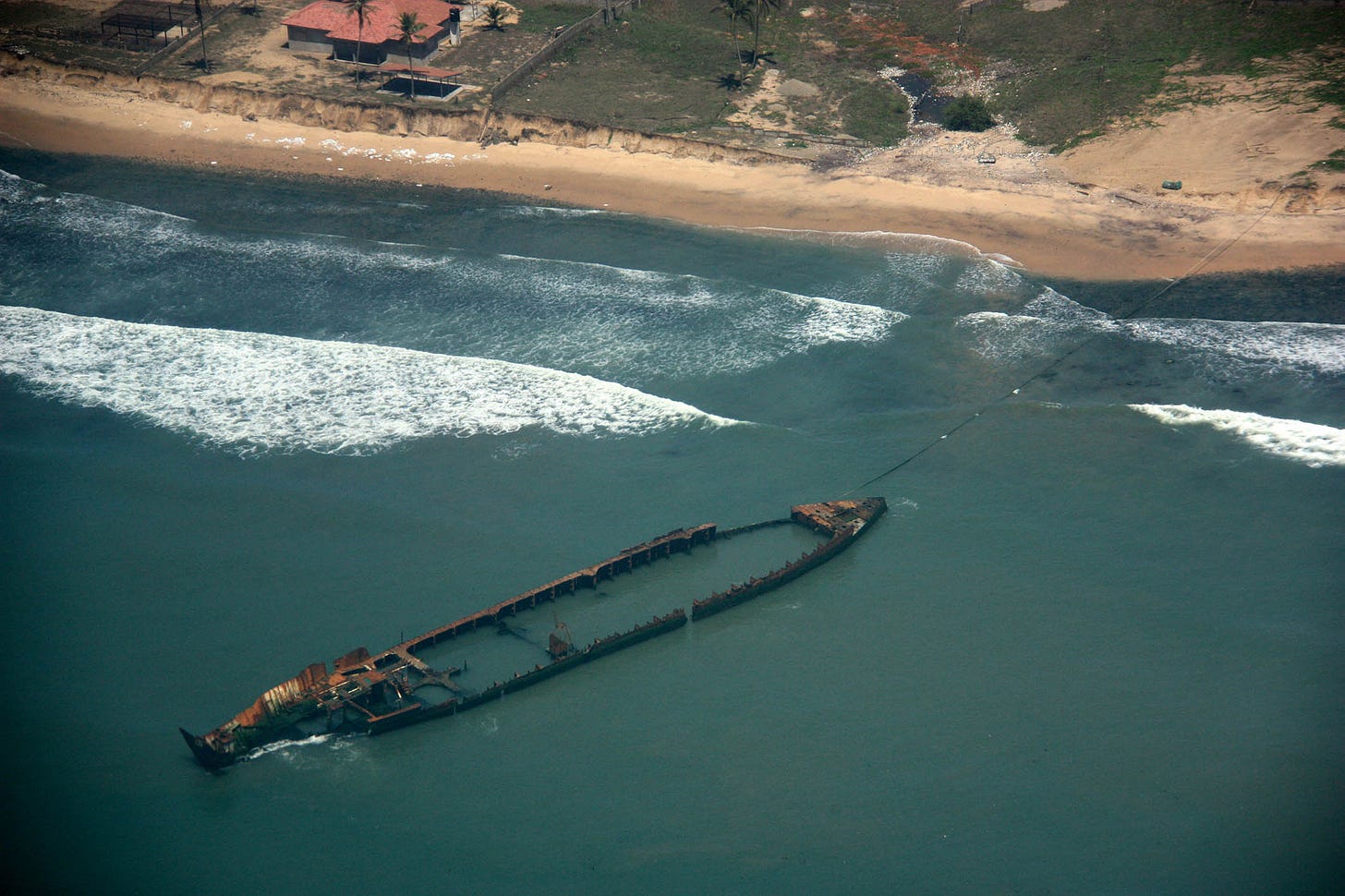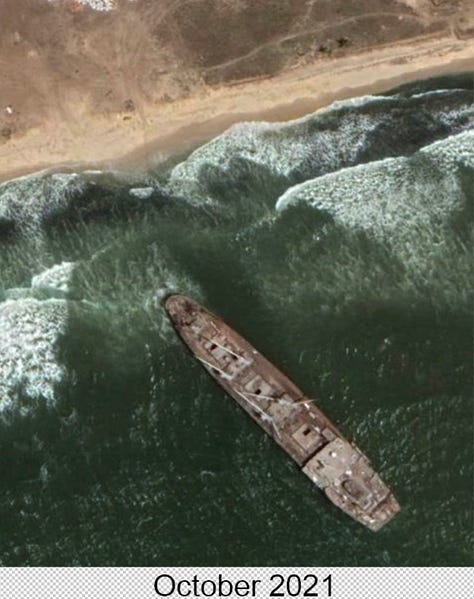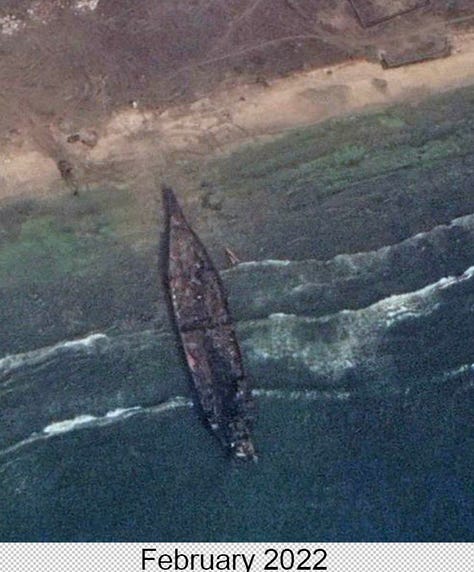Ghana won’t walk its talk on shipbreaking regulations
Taking advantage of Ghana’s environmental laxity, more ship owners are dumping old vessels on its coast
Marian Ansah
Nestled along the Gulf of Guinea, Kpone Beach in Ghana is a stretch of coast featuring flat sandy patches and large rocky headlands. Known for its biodiverse marine ecosystems, it has been a vital source of livelihood for generations of fisherfolk. But when an old fishing vessel, the Naftilos, was demolished along Kpome’s shores in 2021, the community was placed in jeopardy.
Ghana’s 530km coastline is gradually becoming a preferred site for old ships to be dismantled for scrap.
According to the Ghana Maritime Authority, seven vessels were dismantled in 2019, 11 in 2020 and five vessels in 2021.
However, as the demolition of the Naftilos showed, the country is very lax about occupational standards and the environmental guardrails that should govern shipbreaking. That laxity may be why ship owners are increasingly beaching their end-of-life vessels there, said Evans Tetteh, a lecturer at the Regional Maritime University.
Hazardous business
Owned by Greece’s Fairport Shipping Limited, the Naftilos was a refrigerated fish carrier built in Japan in 1985 and registered in Kiribati Islands.
The 92m ship operated in East and West Africa and was detained multiple times before being abandoned at the Tema outer fishing port in 2017.
Five years later, a local company hired residents of Kpone Beach as informal shipbreakers to cut, burn and torch the ship’s parts. Women were offered $10 and men $15 a day for the work. No personal protection equipment was provided, despite the inherent health risks from spilling oily water, heavy metals such as lead and mercury, diesel, toxic Tributyltin (TBT) paint, debris, and other contaminants. Heavy metal toxicity, for instance, can cause disability or death.
“Workers only received medical attention if their injuries were severe, leaving those with less serious concerns uncompensated,” said shipbreaker Bernard Abenyake, who worked on the Naftilos’ demolition.
Fishers in the area were hamstrung. “We cannot venture into the sea once the shipbreaking commences,” said fisherman Oyoo Quartey.
Satellite images from Google Earth show that breaking down the Naftilos took several months, continuing into early 2022. The consequences stretched beyond the shipbreaking exercise.
“The aftermath leaves us with few fish to catch and sell, ” Quartey said.
Edem Mahu, a marine scientist at the University of Ghana, explained that marine pollution from ship demolition affects vital habitats such as mangroves, which are essential for fish reproduction and stock replenishment.

Studies elsewhere have also shown that oil and grease spilling from broken ships reduces light penetration, affecting the exchange of oxygen and carbon dioxide at the air-seawater boundary. This disruption hinders the growth and populations of marine life, especially plankton and fish.
Moreover, Mahu added, shipbreaking poses a clear risk to anyone who consumes seafood: “Contaminants may either dissolve in the water and be absorbed through the skin of fish,” she says, “Or they may be absorbed by phytoplankton that are consumed as food by fish.”
Absentee regulators see no evil
In Ghana, such impacts are not being monitored, and shipbreaking remains largely unregulated. Ghana signed the 2009 Hong Kong Convention for the Safe and Environmentally Sound Recycling of Ships.
With it, the International Maritime Organisation set the standards for addressing the dangers of shipbreaking across the maritime industry. But Ghana still has no sector regulations dedicated to overseeing ship recycling.



Henry Kwabena Kokofu, who heads the Environment Protection Agency, said that while the shipbreaking industry is not regulated, his agency evaluates and permits these activities on a “case-by-case basis”.
But the agency did not respond to a request for an interview to elaborate on what it did in the Naftilos demolition case. However, a shipbreaker who worked on the demolition said that EPA officials were absent from the site and only appeared afterward to clear the shore. This did not surprise industry watchers like Tetteh. “I don’t think the EPA is doing their job properly,” he said.
“First of all, why would you even allow shipbreaking at the beach? It destroys the marine environment. There is no excuse for them to allow this to happen there.”
The Ghana Maritime Authority grants licences to shipbreaking yards and the Ghana Port and Harbour Authority issues permits for the scrapping process. Neither responded to requests for comment on their role in the Naftilos demolition.




